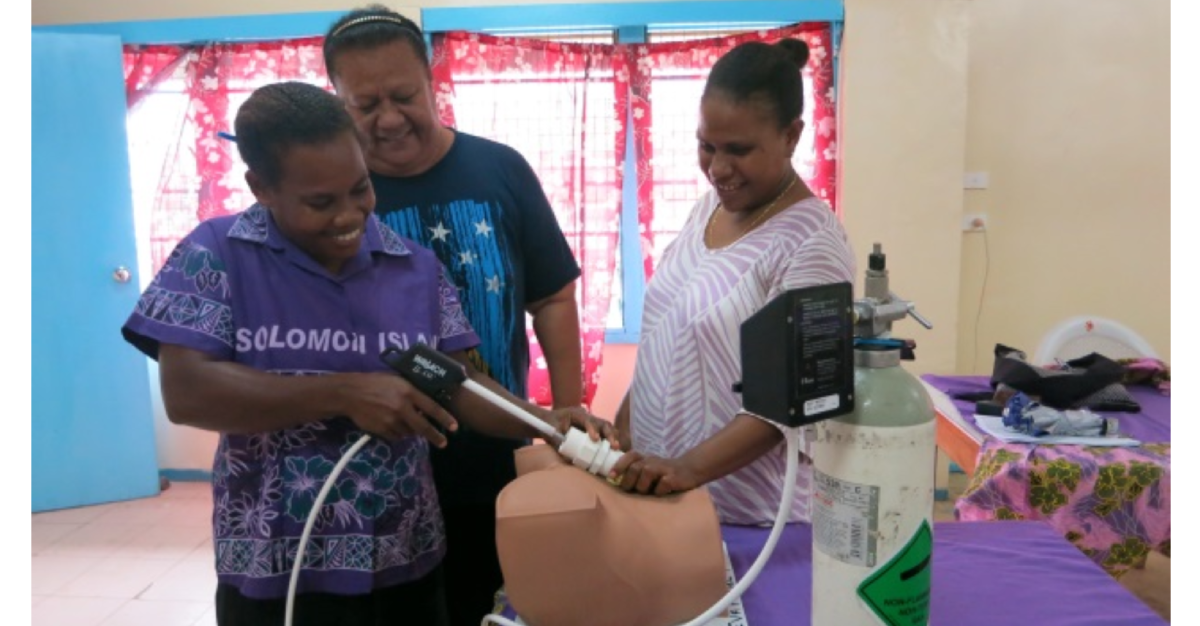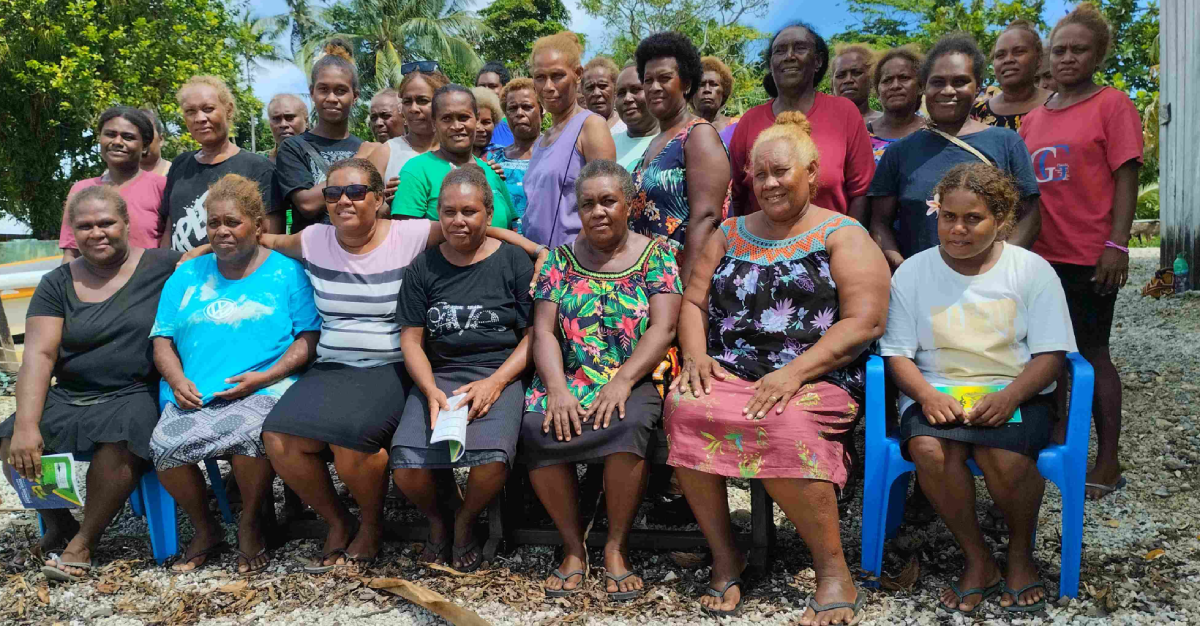By Lagi Keresoma/
Apia, Samoa – 9 June 2025 – A Police Sergeant of 22 years working experience has responded to defense counsels questioning with “I don’t know”, “I don’t remember” and “maybe and not sure” as the case goes into the third week of a five-week trial.
Tony Tevaga was giving evidence last Friday in the high-profile case in the District Court where two former MPs, a former Police Inspector and three others are facing conspiracy, defamation and other charges relating to the unresolved hit and run incident at Vaitele on 21 April 2021.
Tevaga was the 75th of 76 police witnesses and all throughout his evidence, he responded 11 times with the answer “I don’t know,” 14 times with “I don’t remember, 2 times with “maybe and not sure.”
Defense counsels pointed out that the reason he could not remember was because he did not have a notebook to record his notes or a running sheet to enter the daily progress of his own role during the investigation.
Tevaga also could not remember when he joined Superintendent Tupai Sapani Leleimalefaga’s investigation team of 6 officers.
Defense counsel Maposua Tanya Toailoa who represent former Police Inspector Li’o Fa’ataumalama Auava, wanted to know when he joined Tupai’s team and he said “I don’t remember as it’s been a while but I know I joined the team much later into the investigation.”
Maposua put to Tevaga that his leader in the investigation, Superintendent Tupai Sapani Leleimalefaga’s response when asked who his team was and he named his selected team of 6 including Tevaga from the beginning of the investigation.
Tevaga responded “I do not know.”
Also asked if he remembered the month he joined the team and his answer – “I cannot remember.”
Sargent Tony Tevaga. Image/facebook.
Witness claim was not aware of Marie’s first statement
Both Maposua and Marchant asked him if he had read the 3 statements by Samuelu (Sam) Su’a, Sivai Kepi and Marie and he said “no” and which ever way Marchant rephrased the question, Tevaga stuck to his answer of “do not know about the first statement.”
He insisted he did not know about Maries first statement and was not aware there was a first statement.
“Can’t remember or never happened?” asked Marchant.
“I do not know,” said Tevaga
Tevaga confirmed that it was him who recorded Marie’s second statement and Marchant put to him, that the statement he took was much more detailed, which means he read the first statement and used it to expand on the second statement given that he did not ask questions.
Marchant then reminded him of the process of re-interviewing someone. You give them their original statement, let them read and you asked questions.
“I do not know,” said Tevaga.
Marchant then rubbished Tevaga’s evidence saying that everyone knew of Marie’s statement and that she was well-known.
Again his response was “I don’t know.”
“You were told by Tupai to re-interview Marie 6 months earlier
“No” said Tevaga.
Tevaga’s response contradicts Tupai’s evidence which says he gave his team the 3 statements and asked them to re-interview the witnesses and review their statements.
Marchant’s frustration with Tevaga avoiding answering the questions was noted by the Judge who called for an early break.
When the court resumed, Tevaga remembered that it was Senior Sergeant Salale that recorded all information of the interview and Marchant said that if Salale was keeping record, so that means he was present when Tevaga was interviewing Marie.
“I do not know because he recorded the overall of the investigation. I know he (Salale) was in the office but only I interview Marie.” said Tevaga.
Tevaga did not remember how long it took to finalize Marie’s statement so Marchant pointed out that the time frame that took to record Marie’s statement was 3 hours. However, when Tevaga was asked about the questions put to Marie, he said the questions are reflected in Marie’s answers.
Marchant said for a long interview, how was it possible that no questions were asked to base Marie’s responses on especially when Marie was making a second statement which contradicted her first statement.
Witness evasiveness & poor memory
Tevaga has served in the police service for 22 years and for someone with a long history in the force and the rank he holds, defense counsel Maposua Tanya Toailoa stated that it was hard to believe his evidence.
His response was there were more than one case they deal with, but Maposua put to him that the case currently before the court is not an ordinary case.
“We treat all cases equally, ” said Tevaga.
“You kept no notebook, you have poor memory, you’re being evasive answering questions and your evidence carries little weight,” said Maposua.
Tevaga claimed he has never used a notebook.
Prosecution re-cross examination
Prosecutor Taimalelagi Leinafo Strickland in her re-cross examination asked Tevaga if there was any reason why he did not read the three statements.
Tevaga said he knew it all from the video clip. “Ua mausali lo’u iloa mai le video.”
He was also asked why Tupai limited instructions to him verbally and Tevaga said the “instructions were only on the investigation”
Police lawyer clarifies Police Manual and importance of notebook
One of the police witness that took the stand was the Assistant Chief Executive Officer (ACEO) of the Legal Division, Beau Jacek Tuala who explained to the Court the importance of running sheets and notebooks in the daily duties of police officers.
He was asked by defense counsel Kathryn Dalziel if he was aware of the procedure and guidelines that police follow in doing investigation and any other duty to which he said “yes.”
“Can you confirm if police are required to carry notebooks and running sheets when they do investigation?” asked Dalziel.
Tuala said that, that is the process of conducting an investigation and it assists the investigator if the matter is brought to court. He also confirmed that the purpose of the running sheets is to enable the investigator to record the daily progress of events and that police are trained in all issues including the use of running sheets and notebooks.
He was also asked if he was familiar with the rule of evidence and rule of hearsay and Tuala said yes but did not elaborate.
The issue of running sheets and notebook surfaced during Superintendent Tupai and Tevaga’s testimony when defense counsels kept asking why they did not have either of these materials on hand during the investigation.
Superintendent Tupai who led the investigation did not have them and Seargent Tevaga who served for 22 years said it was not a “requirement but only when needed.”
Defense counsel Kathryn Dalziel said the absence of a notebook or running sheets means the absence of any record to corroborate what is provided as evidence in court.
The trial goes into its third week today.






